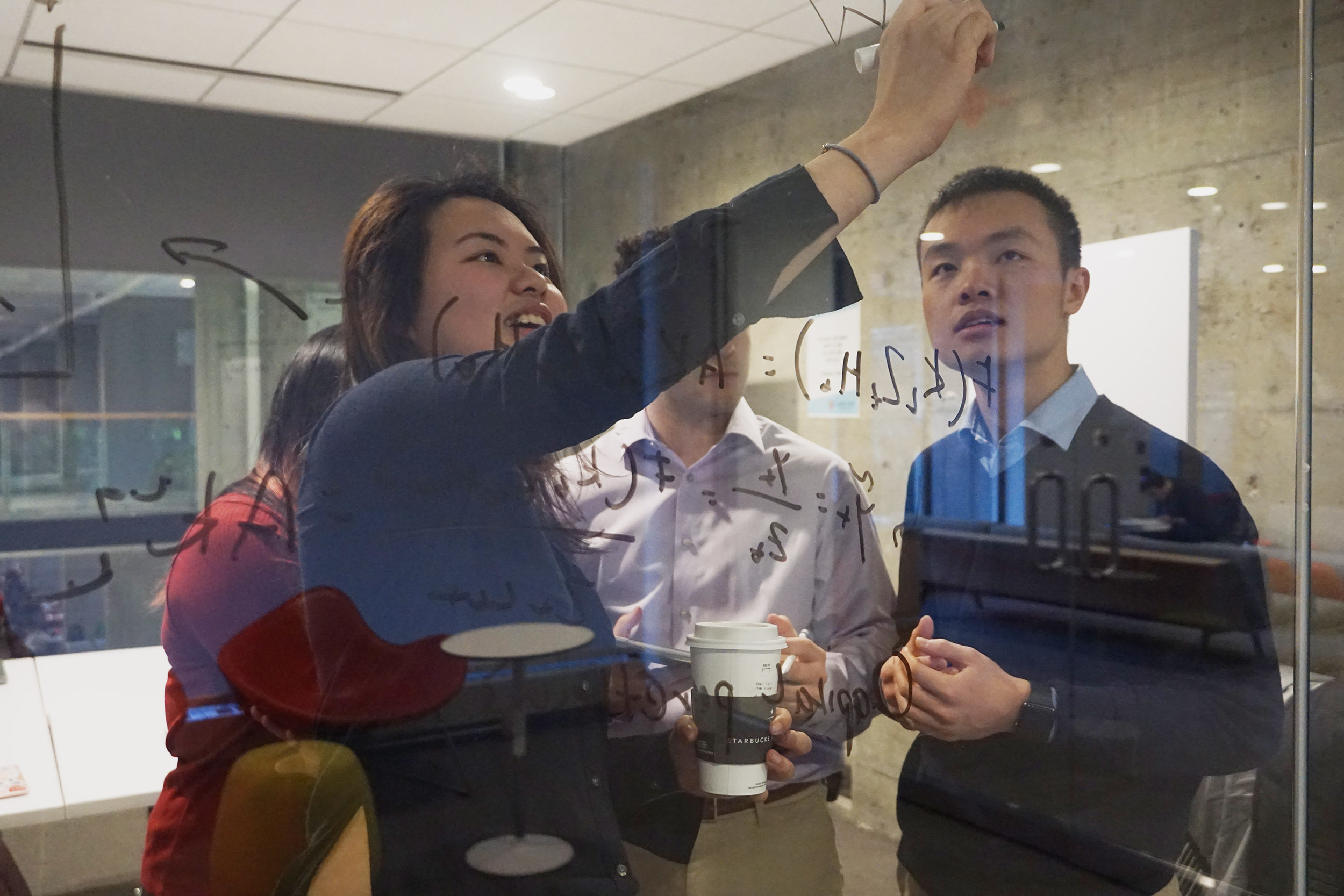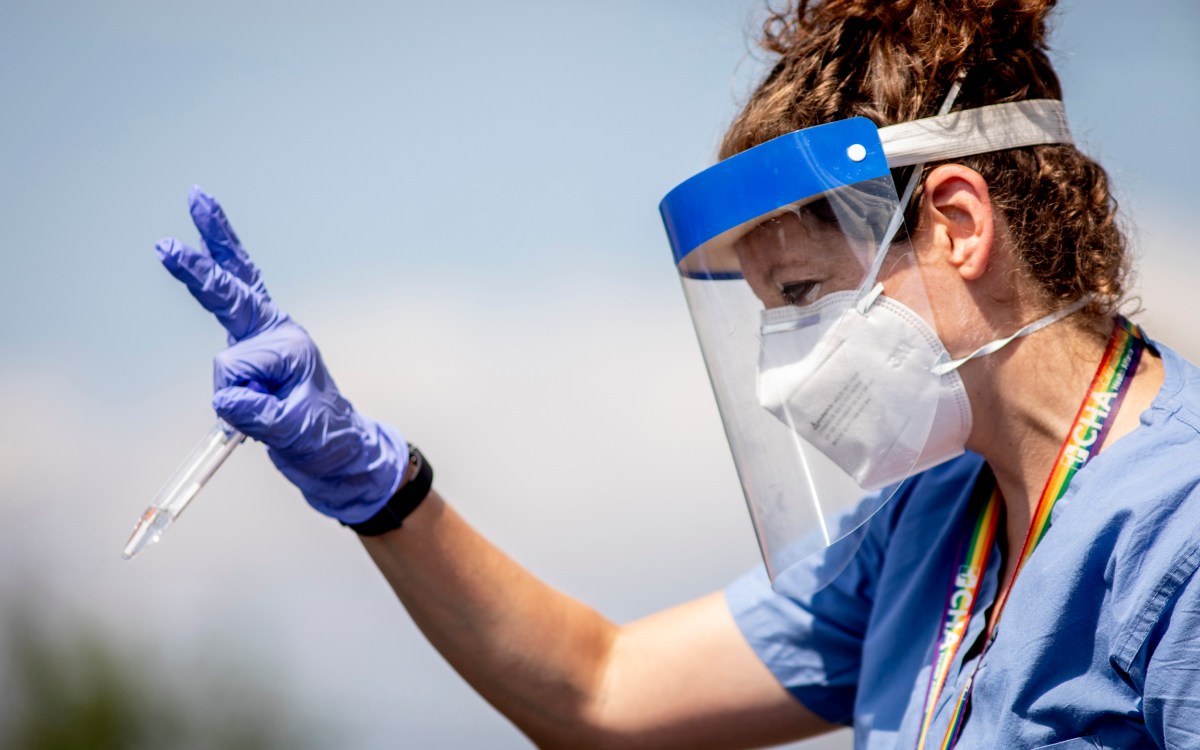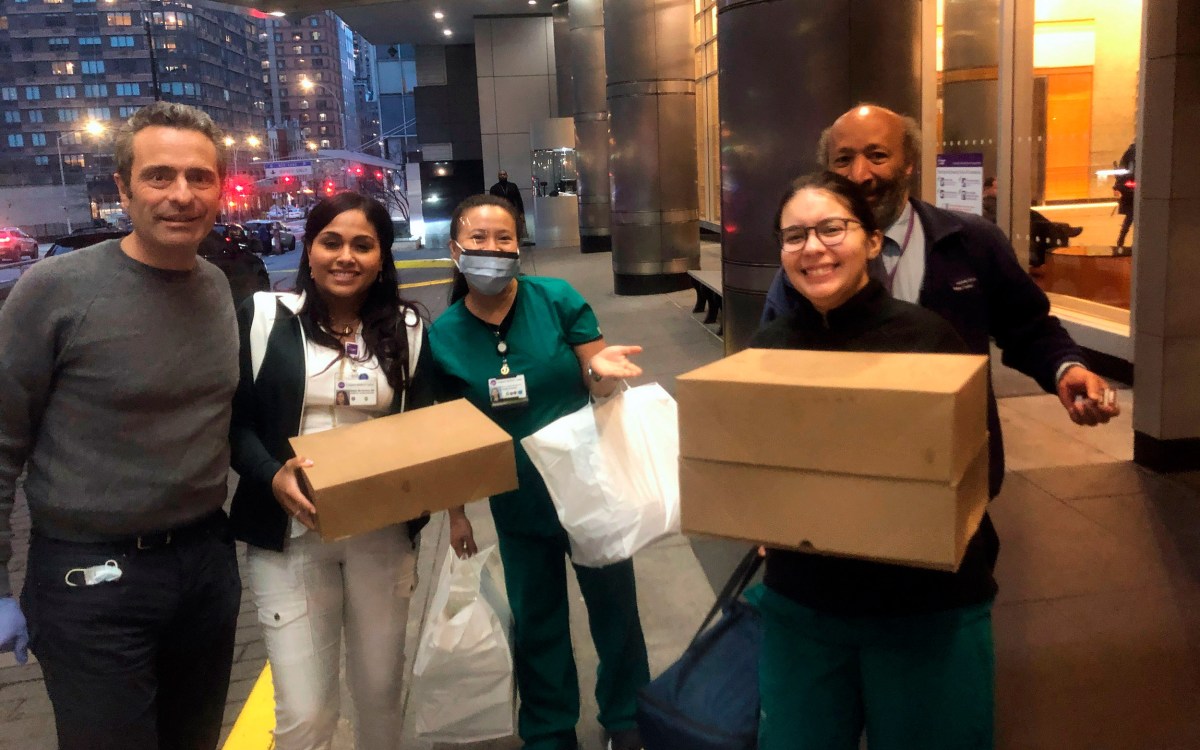
Harvard College Data Analytics Group CEO Jerry Huang, pictured in pre-pandemic days with Karen Chan, decided his group would help others, including the World Health Organization, by providing “data-driven insights related to COVID-19.”
Photo by Trancy Zhu
Using data science for social good
Analytics group joins forces with organizations fighting COVID-19
When COVID-19 forced Harvard’s undergraduates to evacuate campus this past spring, many of them faced difficult choices. For Jerry Huang ’22, a joint concentrator in computer science and statistics and CEO of the Harvard College Data Analytics Group (HDAG), the choice was clear: he needed to use his skills, and his organization, to make a difference in this critical moment.
“When many of us were sent home, we saw a pressing need from society to have people who were able to provide data-driven insights related to COVID-19. We saw that many organizations needed help,” said Huang, who created the group back in January. “So, we leveraged our infrastructure of driven students in order to engage with clients and provide them with data-science services, including data modeling, visualization, and journalism. We bridged the Harvard community and these organizations together.”
In April, the a student-led nonprofit organization created 17 COVID-19 response teams, each made up of four to six members, that partnered with 16 organizations and municipal governments to tackle elements of the COVID-19 crisis. These included the World Health Organization (WHO), International Monetary Fund (IMF), the United Nations Children’s Fund (UNICEF), and the city government of Denver. Originally a small cohort of about 25 undergraduates, HDAG soon had more than 100 members from across the University.
“This experience was amazingly rewarding,” said Joey Toker ’21, who led a team working with the International Telecommunication Union. Because the COVID-19 crisis has placed great stress on internet usage, the group decided to explore how different companies and countries were meeting the demand. “This was a real chance to help out policymakers and to figure out what other countries are doing in response to the pandemic. All of this work contributes to ideas for how we can tackle this unprecedented, global problem, and how we connect with others from across the world while doing so.”
“Our work will help the [International Monetary Fund] advance how they gather more real-time insights to inform their understanding of what is happening on the ground in countries in Africa.”
Jiawen Tang
The group found success among their diverse projects. The WHO team, led by Justin Zhu ’21, created an interface that estimates COVID-19 transmission rates, which can inform WHO’s future policies. The Education Trust Michigan team, led by Evelyn Cai ’22, successfully mapped internet access rates by public school district in Michigan to address the “digital divide” that affects students enrolled in virtual classes.
“My younger brother was taking online classes without much supervision. I was worried about how his school would be able to effectively teach online, and I also saw the transition to virtual learning as a much larger problem that many others were going through,” said Cai. “I think there is great potential for this visualization tool we have created to impact policymakers, and to make change.”
Jiawen Tang, a graduate student at HKS and Stanford, led her team of Brandon Buell ’20, Carissa Chen ’21, Hyeon-Jae Seo ’20, and Nils Wendt, a computing group exchange scholar at the Harvard John A. Paulson School of Engineering and Applied Sciences as they consolidated and analyzed mobile payment data, satellite imagery, Google trends, and other macroeconomic data to create a “near future” forecast of economic activity in African countries. Through this analysis, the IMF will be able to better assess the economic impact of COVID-19 in specific sub-Saharan African countries.
“Our work will help the IMF advance how they gather more real-time insights to inform their understanding of what is happening on the ground in countries in Africa. It’s important to not lose sight of the fact that we are not tracking economic activity for the sake of monitoring whether GDP is going up or down, but rather to enable evidence-based decision-making that impacts real human lives and well-being,” said Tang. “Our project is one small way of contributing to the many ongoing efforts to address systematic inequalities and to democratize access to information.”
“It was awesome to work with this team, and I enjoyed seeing them take ownership of their projects,” said Reda Cherif, a senior economist at the IMF who works in the African department. “Not only were they willing to learn and try different approaches or angles, but they also really leveraged their creativity and were able to make multilevel contributions to this work. They showed that the data they collected actually mattered.”






